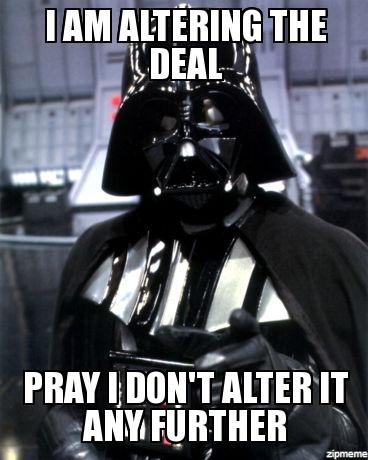Changing the Rules After the Sale
As I noted last week, the concept of intellectual property is an oxymoron. Today I want to expand on that by pointing out another absurdity of intellectual property.
Let's consider a hypothetical situation where I own an electronics store and you just purchased a laptop from me. There was nothing unusual about the transaction. You didn't have to read any contracts or sign any papers. You handed me cash and I handed you a laptop. The laptop is yours, right? Not so fast.
When you get home and power up your new laptop for the first time, you are presented with a legal contract that says you can't make any modifications to the laptop's hardware, install any operating system other than the one that came with the laptop, or install any software not distributed by the manufacturer's app store. If you don't agree with the contract, you can't use the computer.
What I just described is a slightly hyperbolic version of a shrink wrap license. When you purchase a piece of software, you usually aren't presented with the end user license agreement (EULA), the document that lays out what you can and can't do with the software, until after the sale. No big deal, you may think, because if you don't agree with the post-sale EULA, you can just return the software, right? You may find that easier said than done. Most stores won't take back copies of software that have been opened and if you read the EULAs for online app stores, there are often severe restrictions in place in regards to returning purchases. But even if you can return the software, why should that be considered your only form of recourse? Why should you be bound to any terms presented after the transaction has been concluded?
This is yet another characteristic of intellectual property that I doubt most people would so willingly accept if it were applied to physical property. If you purchased a car and the dealer decided to foist a bunch of restriction on you after you paid for the vehicle but before you drove it off of the lot (i.e. it's your property but you haven't gotten into the car since it became your property), would you take them seriously? Most people probably wouldn't. I certainly wouldn't. So why is such a practice considered acceptable for intellectual property?
